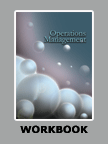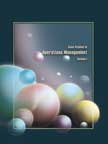Apple Inc.'s Returns Management Practices




|
|
ICMR HOME | Case Studies Collection
Case Details:
Case Code : OPER097
Case Length : 15 Pages
Period : 2000-2011
Organization : Apple Inc
Pub Date : 2011
Teaching Note :Not Available
Countries : US
Industry : Consumer Electronics
To download Apple Inc.'s Returns Management Practices case study
(Case Code: OPER097) click on the button below, and select the case from the list of available cases:

Price:
For delivery in electronic format: Rs. 500;
For delivery through courier (within India): Rs. 500 + Rs. 25 for Shipping & Handling Charges
» Operations Case Studies
» Operations Short Case Studies
» View Detailed Pricing Info
» How To Order This Case
» Business Case Studies
» Case Studies by Area
» Case Studies by Industry
» Case Studies by Company
Please note:
This case study was compiled from published sources, and is intended to be used as a basis for class discussion. It is not intended to illustrate either effective or ineffective handling of a management situation. Nor is it a primary information source.
|
|
<< Previous
Introduction Cont...
|
Founded in 1976, Apple designed, manufactured, and marketed personal computers, portable digital music players, and mobile communication devices and related software, services, peripherals, and networking solutions. Some of its remarkable products and services included the Macintosh line of desktop and portable computers, the iPhone, the iPod line of portable digital music players, Apple TV, Xserve, consumer and professional software applications, the Mac OS X operating system, third-party digital content and applications through the iTunes online store, and a variety of accessory, service, and support offerings. As of
|
|
September 2010, Apple had about 49,400 employees worldwide. For the year ended September 26, 2010, Apple posted net sales of US$ 65.225 billion and a net income of US$ 14.013 billion7. According to renowned British journalist and author, Bryan Appleyard, Apple was the world’s ‘most watched, envied, admired, and adored company’ and it was ‘consumer capitalism’s greatest hero’8.
Apple’s success was attributed to its ability to churn out innovative products and to create a huge buzz surrounding its products. As important to its success was the way it managed its supply chain, especially the returns management9 in the supply chain...
Excerpts
- Next Page>>
|
|



